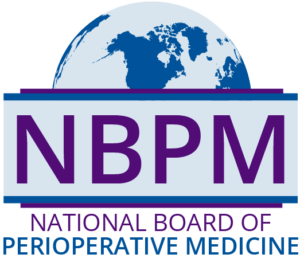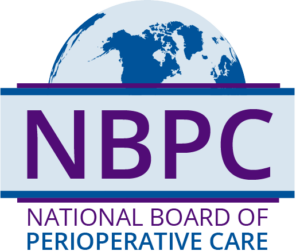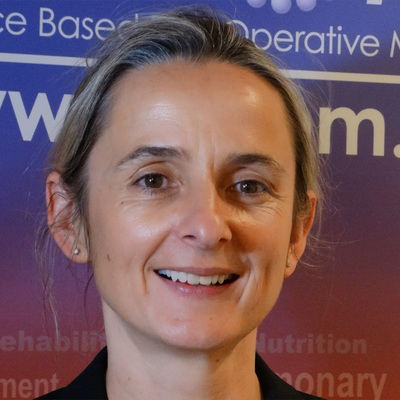A global collaboration to advance patient-centered, perioperative care through science, education and policy.
Our mission
Improve the health of the population by:
- Inspiring a global community of innovators in perioperative care to create sustainable health care solutions
- Advancing the science of perioperative medicine through world-class research
- Fostering learning to develop perioperative leaders and educators
- Leading transformative discussions to shape future perioperative care practices and health care policy
About Morpheus Consortium
Named after the ancient Greek god of dreams, the Morpheus Consortium embodies a shared aspiration to deliver innovative perioperative care to meet the evolving needs of patients undergoing major surgery. It’s also the branding of three universities, Duke University, University College London and University of Southampton, with one shared goal – to be the leaders in perioperative medicine and enhanced recovery after surgery, ultimately improving the patients’ journey from the moment their surgery is contemplated to full recovery.

Innovation

Research

International Training

Patient Care
Surgeries/Year
Across Morpheus Consortium
Surgeries/Year
In The UK
Surgeries/Year
In The US
Surgeries/Year
Worldwide
Morpheus Consortium Training Opportunities
The Morpheus Perioperative Medicine Online Fellowship (for physicians) and the Morpheus Perioperative Care Online Certificate (for non-physicians) each offer 40 weeks of online content delivered by international, world-renowned faculty. These training programs include online and on-site curricula delivered with weekly lectures and course moderators. Individualized curricula are tailored for the physician and CRNA/APN/PA candidates.
Exposure to the science and implementation of perioperative medicine through online and in-person learning opportunities, by self-discovery and interaction with experts.
Topics covered include:
- Perioperative medicine is population health
- Health economics, value and perioperative care
- Re-engineering the perioperative pathway from contemplating intervention to discharge from care
- Evidence-based enhanced recovery for major abdominal surgery
- Evidence-based enhanced recovery for orthopedic surgery
- The role of anesthesia in the opioid epidemic
- Fluid and hemodynamic optimization during major surgery
- How to set up a preoperative anemia clinic
Exposure to the science and practice of perioperative care through online and in-person learning opportunities, by self-discovery and interaction with experts.
Topics covered include:
- The rationale for perioperative medicine
- Outcome differences related to changes in perioperative care
- Care modifications that align all steps, from considering surgery to full recovery
- Major abdominal surgery enhanced recovery protocols
- Orthopedic surgery enhanced recovery protocols
- Opioid minimization and opioid-free anesthesia
- Fluid and hemodynamic optimization during major surgery
- Preoperative clinics as a model for the perioperative team
Exposure to the science and practice of clinical nutrition through online and in-person learning opportunities, by self-discovery and interaction with experts.
Topics covered include:
- Screening and assessment of malnutrition
- Identification of patients at high nutritional risk
- Evidence-based best practices for delivering nutrition care to hospitalized patients
- Enteral and parental nutrition
- Neonatal ICU nutrition
- Perioperative nutrition
- Critical Care nutrition
- Optimal structures and framework for the teams to deliver personalized nutrition care
- Sakai Learning Content Management System
- Mobile and tablet friendly
- Weekly lectures with discussion forums hosted by a faculty moderator
- Interactive chat (blog) sessions with faculty and participants
- Multimedia high-definition quality video
- Timely topics presented by recognized faculty
- Variety of course electives available
- Variable speed playback
- Participants may visit Duke for a three or four-day preceptorship (travel, food, and lodging is at the customer expense)
- Participants may attend EBPOM meeting(s) virtual or in-session in the UK and/or US (Chicago, Las Vegas) for instruction & discussions
- Graduation certificate/ceremony at EBPOM – London or virtual (travel, food, and lodging is at the customer expense)
- 36 faculty lectures or equivalent presentations prepared and presented by Morpheus or guest faculty
- Content during on-site visit (Duke) to include lectures, case reports, Q & A, open forum, panel discussions
- Participant may request a Morpheus faculty mentor for personal feedback and mentoring
- Morpheus faculty actively engaged in weekly discussion forums
- Dedicated program director
Currently, the program is suspended. If you have any questions, please contact Sundar Krishnan, MBBS.

Sundar Krishnan, MBBS
Associate Professor of Anesthesiology
Director, Morpheus Consortium Training Programs
Department of Anesthesiology
DUMC 3094
Duke University Medical Center
Email: [email protected]

Mark Edwards, BMedSci, BMBS, MRCP, FRCA, MD(Res)
Assistant Director, Morpheus Consortium Training Programs
Consultant in Anaesthesia & Perioperative Medicine
University Hospital Southampton
Honorary Senior Clinical Lecturer, University of Southampton
Email: [email protected]

John Whittle, MBBS, MD(Res), AFHEA,FRCA, FFICM
Assistant Director, Morpheus Consortium Training Programs
Consultant in Anaesthesia, Critical Care and Perioperative Medicine
Honorary Associate Professor, Critical Care and Perioperative Medicine
University College London Hospitals NHS
Email: [email protected]
Danielle Corrigan-Webster
Program Coordinator, Morpheus Consortium Training Programs
Department of Anesthesiology
Duke University Medical Center
DUMC 3094, MS #05
Durham, NC 27710
Email: [email protected]
In compliance with federal and state anti-discrimination laws, we do not discriminate against applicants because of an individual’s race, color, religion, age, gender, sexual orientation, national origin, genetic information, veteran status, or disability.
Boards
 Perioperative medicine is an evolving field of medicine that addresses the vulnerabilities of increasing age and complexity of patients and the increase in the number of surgical procedures being performed in United States. There is a critical need to standardize the evidence-based care of surgical patients at risk to ensure optimal outcomes.
Perioperative medicine is an evolving field of medicine that addresses the vulnerabilities of increasing age and complexity of patients and the increase in the number of surgical procedures being performed in United States. There is a critical need to standardize the evidence-based care of surgical patients at risk to ensure optimal outcomes.
The National Board of Perioperative Medicine comprises a group of medical professionals who are considered experts in their respective areas of Perioperative Medicine. The aim of the board is to formulate a perioperative medicine syllabus for use in the training of physicians in perioperative medicine in the United States.
Please contact Susan Morris at [email protected] or 919-681-6754 with any questions.
Board Members
 Padma Gulur, MD
Padma Gulur, MD
Board Chair
Podcasts
Video Clips
Perioperative Pathways
Perioperative Medicine is Population Health
Proposed Syllabus
Overview
OV1: Perioperative Medicine is Population Health
OV2: The POC Team
OV3: Health Economics, Value and Perioperative Care
OV4: Designing Clinical Pathways – ERAS
OV5: Monitoring and Evaluation of POC
OV6: Understanding Population Health Reseach
OV7: Quantitating the Value of Perioperative Medicine: How to do it, Why it is critical, How far have we to go
OV8: Building and Managing a Pre-Operative Clinic
OV9: The Role of a Peri-operative Consult Service
OV10: Building and Managing a Follow Up Service
OV11: Leadership and Team Building
OV12: Process and Quality Improvement
OV13: Patient Safety, Human Factors and Ethnography
OV14: Data Science for Health: Maybe Better than the RCT?
OV15: Maximizing Perioperative Value Delivery in the Post-Health Care Reform Era
OV16: Reengineering the Pathway from Contemplation of Surgery to Full Recovery
Preoperative
PRE1: Enhanced Recovery After Surgery Pathways
PRE2: Prehabiltation and the Role of Exercise
PRE3: Cannabinoids and Pain Management
PRE4: Preoperative Carbodydrates and Hydration
PRE5: Setting up a Preoperative Anemia Clinic
PRE6: Obstructive Sleep Apnea
PRE7: Smoking and Alcohol Cessation / Moderation
PRE8: Perioperative Management of the Diabetic Patient
PRE9: Objective Evaluation of Fitness with Cardiopulmonary Exercise Testing
PRE10: Basics of Motivational Interviewing- the Importance of Health Coaching in the Preop Clinic
PRE11: Arrhythmias, Pacemakers, AICD
PRE12: How to Set Up a Preop Screening and Optimization Clinic
PRE13: Management of Chronic Pain and Opioid-Dependent Patients
PRE14: Delirium: Assessment, Avoidance, and Management
PRE15: Recreational Drug Use and Addictions
PRE16: The Role of POCUS in Perioperative Medicine
Intraoperative
INTRA1: Focusing on Optimal Analgesia to Promote Functional Recovery
INTRA2: Opioid Minimization and Avoidance – Principles and Techniques
INTRA3: Heart Disease in Pregnancy: Overarching Principles of Care
INTRA4: Enhanced Recovery for Caesarian Section
INTRA5: Enhanced Recovery for Major Abdominal Surgery
INTRA6: Fluid and hemodynamic optimization within Enhanced Recovery
INTRA7: Regional Anesthesia: Fascial Plane Blocks
INTRA8: Enhanced Recovery for Orthopedic Surgery
INTRA9: Pulmonary Hypertension and Heart Failure
INTRA10: Myocardial Injury and Protection
INTRA11: Perioperative Nephrology – Renal Protection
INTRA12: Lung Protective Ventilation in the OR
INTRA13: Perioperative Oxygen: Too Much…Too Little…or Just Right?
INTRA14: Enhanced Recovery in Emergency Surgery
INTRA15: Mechanical Cardiac Assist Devices
INTRA16: Enhanced Recovery for Cardiac Surgery
Postoperative
POST1: Postoperative Levels of Care: ICU, Floor, Same Day
POST2: The Role of Perioperative Medicine in the Opioid Epidemic
POST3: Management of Chronic Pain, Persistent Opioid Use (Independent of Chronic Pain)/IV Drug Abusers
POST4: Preventing and Managing Postopertive Delirium
POST5: Evaluation and Assessment of Home Medications/Drug-Drug Interactions
POST6: Postoperative BP Control: Goal Directed Therapy
POST7: Guiding Geriatric Patients through the Perioperative Course
POST8: Postoperative Cognitive Dysfunction
POST9: Respiratory, Airway, Ventilatory Strategies
POST10: Perioperative Nutrition
POST11: The Role of Postoperative Critical Care
POST12: Anemia, Coagulopathy, Thromboprophylaxis
POST13: PONV/PDNV Management
POST14: The Pandemic of Postoperative Morbidity
POST15: Discharge Planning and Postoperative Care Teams
 Perioperative care is an evolving field that addresses the vulnerabilities of increasing age and complexity of patients and the increase in the number of surgical procedures being performed in United States. There is a critical need to standardize the evidence-based care of surgical patients at risk to ensure optimal outcomes.
Perioperative care is an evolving field that addresses the vulnerabilities of increasing age and complexity of patients and the increase in the number of surgical procedures being performed in United States. There is a critical need to standardize the evidence-based care of surgical patients at risk to ensure optimal outcomes.
The National Board of Perioperative Care comprises a group of health care professionals who are considered experts in their respective areas of perioperative care. The aim of the board is to formulate a perioperative care syllabus for use in the training of health care professionals in perioperative care in the United States.
Please contact Susan Morris at [email protected] or 919-681-6754 with any questions.
Board Members
 Monty Mythen, MBBS, MD, FRCA, FFICM, FCAI (Hon)
Monty Mythen, MBBS, MD, FRCA, FFICM, FCAI (Hon)
Board Chair
Podcasts
Video Clips
Fluid and Hemodynamic Optimization
Acute Pain Management in the Chronic Opioid User
Proposed Syllabus
Overview
OV1: Introduction to Perioperative Care
OV2: The POC Team
OV3: Health Economics
OV4: Designing Clinical Pathways – ERAS
OV5: Monitoring and Evaluation of POC
OV6: Quality Measurement
OV7: Basics of OR Management
OV8: Building and Managing a Pre-Operative Clinic
OV9: The Role of a Peri-operative Consult Service
OV10: Building and Managing a Follow Up Service
OV11: Leadership and Team Building
OV12: Process and Quality Improvement
OV13: Patient Safety, Human Factors and Ethnography
OV14: The Value Proposition 1 – Prehabillitation / Optimisation
OV15: The Value Proposition 2 – ERAS
Preoperative
PRE1: Enhanced Recovery After Surgery Pathways
PRE2: Prehabiltation
PRE3: Exercise
PRE4: Nutrition
PRE5: Anemia
PRE6: Obstructive Sleep Apnea
PRE7: Smoking and Alcohol Cessation / Moderation
PRE8: Diabetes
PRE9: Objective Evaluation of Fitness
PRE10: Coagulation
PRE11: Arrhythmias, Pacemakers, AICD
PRE12: Mental Wellbeing and Resilience
PRE13: Management of Chronic Pain and Opioid-Dependent Patients
PRE14: Delirium (II): Assessment, Avoidance, and Management
PRE15: Recreational Drug Use and Addictions
PRE16: Digital Health
Intraoperative
INTRA1: Focusing on Optimal Analgesia to Promote Functional Recovery
INTRA2: Opioid Minimization and Avoidance – Principles and Techniques
INTRA3: Fluids, Electrolytes, Total Body Water, Hydration, Volume Status
INTRA4: Advance Haemodynamic Monitoring
INTRA5: Depth of Anesthesia / Nociceptive / NMB Monitoring
INTRA6: Goal Directed Therapy
INTRA7: Perioperative BP Control – Autoregulation
INTRA8: Aortic Stenosis and Other Valve Disorders; Arrhythmias, Pacemakers, AICD
INTRA9: Pulmonary Hypertension and Heart Failure
INTRA10: Myocardial Injury and Protection
INTRA11: Perioperative Nephrology – Renal Protection
INTRA12: Asthma, COPD and Lung Protection
INTRA13: Glycemic Control
INTRA14: Perioperative Blood Management
INTRA15: Perioperative Temperature Management
INTRA16: Triage to Post-Operative Care Areas and Handoffs
Postoperative
POST1: Postoperative Levels of Care: ICU, Floor, Same Day
POST2: Optimal MultiModal Analgesia to Minimize or Avoid Opioids
POST3: Management of Chronic Pain, Persistent Opioid Use (Independent of Chronic Pain)/IV Drug Abusers
POST4: Sleep, Delirium, POCD
POST5: Evaluation and Assessment of Home Medications/Drug-Drug Interactions
POST6: Postoperative BP Control: Goal Directed Therapy
POST7: Arrhythmias: EKG Interpretation; EKG Evaluation and Medications
POST8: Cardiac: Structural Disorders and Disease States
POST9: Respiratory, Airway, Ventilatory Strategies
POST10: Fluids, Electrolytes, Acid-Base, Nutrition
POST11: Endocrine Management
POST12: Anemia, Coagulopathy, Thromboprophylaxis
POST13: PONV/PDNV Management
POST14: Postoperative Recovery
POST15: Discharge Planning and Postoperative Care Teams
Our team
Joining forces to improve patient outcomes and quality of life.
Latest News
Publications
Latest
POQI Publications

























 Solomon Aronson, MD, MBA, FASA, FACC, FCCP, FAHA, FASE, is a tenured professor at Duke University and executive vice chairman within Duke Anesthesiology. Dr. Aronson is recognized as an expert on topics concerning perioperative echocardiography, perioperative blood pressure risk, perioperative medicine and population health, health care strategy and health economics; he has written more than 300 manuscripts, book chapters and abstracts, as well as six textbooks, lectured nationally and internationally, and has been repeatedly elected by his peers to be listed in Best Doctors in America.
Solomon Aronson, MD, MBA, FASA, FACC, FCCP, FAHA, FASE, is a tenured professor at Duke University and executive vice chairman within Duke Anesthesiology. Dr. Aronson is recognized as an expert on topics concerning perioperative echocardiography, perioperative blood pressure risk, perioperative medicine and population health, health care strategy and health economics; he has written more than 300 manuscripts, book chapters and abstracts, as well as six textbooks, lectured nationally and internationally, and has been repeatedly elected by his peers to be listed in Best Doctors in America. Joseph Mathew, MD, MHSc, MBA, FASE, is the Jerry Reves Professor of Anesthesiology and chairman of Duke Anesthesiology at Duke University School of Medicine (appointed March of 2015). Dr. Mathew is an active physician-scientist funded by the National Institutes of Health for his research on perioperative neurocognition and functional brain connectivity, particularly in the setting of cardiac surgery.
Joseph Mathew, MD, MHSc, MBA, FASE, is the Jerry Reves Professor of Anesthesiology and chairman of Duke Anesthesiology at Duke University School of Medicine (appointed March of 2015). Dr. Mathew is an active physician-scientist funded by the National Institutes of Health for his research on perioperative neurocognition and functional brain connectivity, particularly in the setting of cardiac surgery. John Borrelli, MBA, began serving as chief administrator within Duke Anesthesiology in October of 2011. He manages the departmental budget and runs a business office responsible for HR and operations, finance and accounting, revenue cycle management, grants administration, and IT services, specializing in perioperative DataMart, management systems and application development. Borrelli also serves as an adjunct professor at Roberts Wesleyan College in Rochester, New York.
John Borrelli, MBA, began serving as chief administrator within Duke Anesthesiology in October of 2011. He manages the departmental budget and runs a business office responsible for HR and operations, finance and accounting, revenue cycle management, grants administration, and IT services, specializing in perioperative DataMart, management systems and application development. Borrelli also serves as an adjunct professor at Roberts Wesleyan College in Rochester, New York.